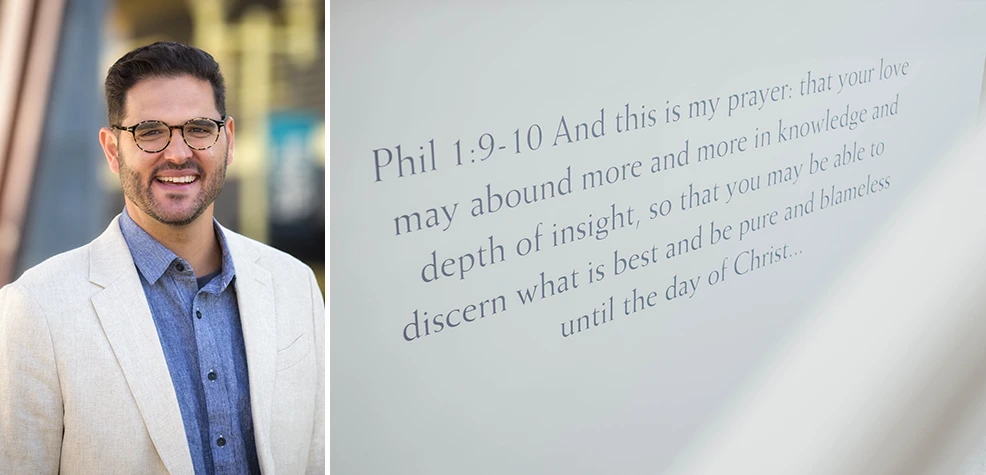
Learning to Read Scripture with Jesus and the Early Church
My love for the Bible was ignited during my undergraduate studies at Jessup. In my first semester as a transfer student, in the spring of 2007, Dr. Merilyn Copeland opened my eyes to the depth and beauty of the Old Testament.
My knowledge of the “Old Testament” came by way of my Jewish upbringing, but this was the first time I had studied these texts in their historical context—and with someone who was a trained archeologist, no less! Then, in the very next semester (fall of 2008), I had the privilege of studying Jesus and the Gospels with Dr. David Nystrom.
It’s hard to put into words what that class meant to me. To see Jesus in his first-century Jewish context, to read the evangelists’ breathtaking and revolutionary renditions of the Jesus story—I simply couldn’t get enough of it. One comment Dr. Nystrom made, in particular, struck a chord. “For the writers of the New Testament,” his voice boomed, “the Old Testament was a lot like Home Depot.” In other words, he explained to us, the Old Testament offers the essential building blocks of New Testament theology. (An homage to the great C. H. Dodd, who made the case in “According to the Scriptures: The Sub-structure of New Testament Theology.”)
My interest in how New Testament writers used Old Testament texts animated my studies at Fuller Theological Seminary and became the impulse for my Ph.D. dissertation at the University of St. Andrews, which explores the intersection of ancient biblical interpretation and messianism. What we find is that beliefs about the messiah (or, in the case of the New Testament, Jesus Messiah) are never disconnected from exegesis (that is, interpretation of Old Testament texts). Rather, messianic discourse, always and everywhere, draws on inherited patterns of speech, idioms, and frames of the Old Testament to project a particular vision of the world. This insight is central to the argument of my first book, “Jesus Christ as the Son of David in the Gospel of Mark,” which I am honored to say, was awarded the 2021 Manfred Lautenschlaeger Award for Theological Promise.
Currently, I have several writing projects underway, including a book on Mark’s use of the Old Testament, a Greek reader, and an introduction to the New Testament and its interpretation. Most of my published scholarship is available at Jessup.academia.edu/Max Botner. For information on my work in the church, please visit my website: maxbotner.com.
I see my scholarship as an act of worship. The more time I spend in ancient texts and languages, the longer I contemplate the stories and interpretive strategies of Jesus and his first followers, the deeper I feel drawn into the cosmic story of God’s redemptive love. Each semester I try to raise afresh the question for my students: How then shall we read? The answer, I hope to persuade them, is that we learn evermore to read Scripture with Jesus and the early church.
